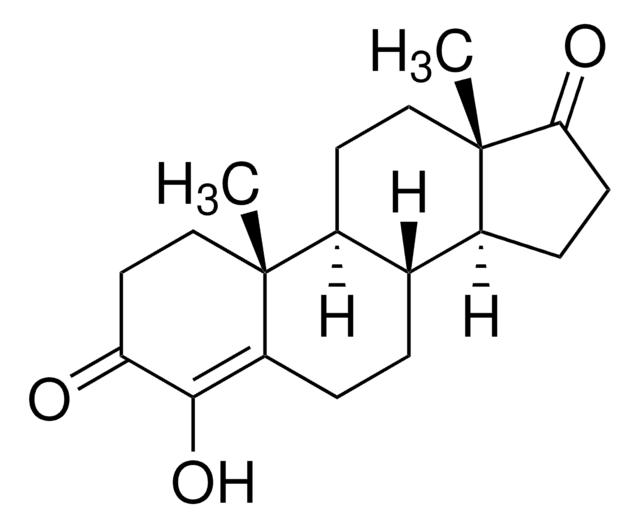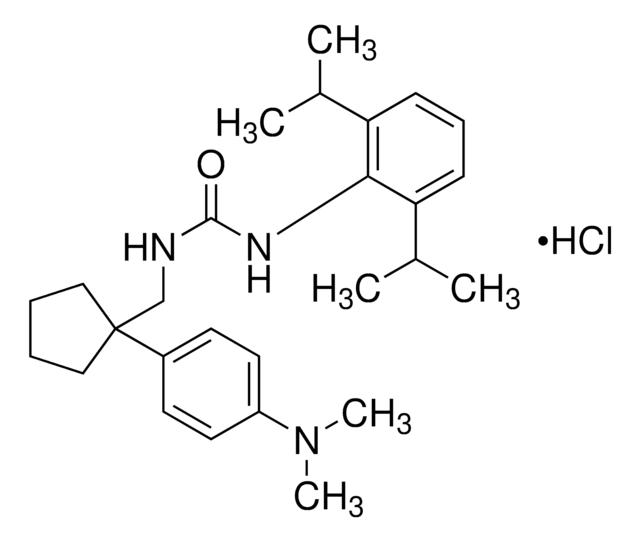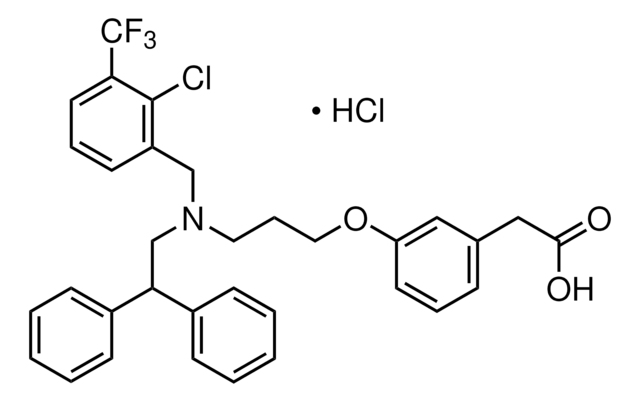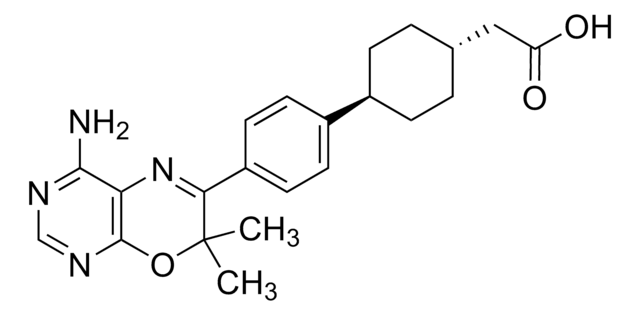Wichtige Dokumente
SML1837
K-604
≥98% (HPLC)
Synonym(e):
2-[4-[2-(Benzimidazol-2-ylthio)ethyl]piperazin-1yl]-N-[2,4-bis(methylthio)-6-methyl-3-pyridyl]acetamide dihydrochloride, 4-[2-(1H-Benzimidazol-2-ylthio)ethyl]-N-[6-methyl-2,4-bis(methylthio)-3-pyridinyl]-1-piperazineacetamide dihydrochloride, K604
About This Item
Empfohlene Produkte
Qualitätsniveau
Assay
≥98% (HPLC)
Lagerbedingungen
desiccated
Farbe
white to beige
Löslichkeit
DMSO: 10 mg/mL, clear
Lagertemp.
2-8°C
SMILES String
O=C(NC1=C(SC)C=C(C)N=C1SC)CN2CCN(CCSC3=NC4=CC=CC=C4N3)CC2.[H]Cl.[H]Cl
InChIKey
DEKWEGUBUYKTAV-UHFFFAOYSA-N
Biochem./physiol. Wirkung
Lagerklassenschlüssel
11 - Combustible Solids
WGK
WGK 3
Flammpunkt (°F)
Not applicable
Flammpunkt (°C)
Not applicable
Hier finden Sie alle aktuellen Versionen:
Analysenzertifikate (COA)
Die passende Version wird nicht angezeigt?
Wenn Sie eine bestimmte Version benötigen, können Sie anhand der Lot- oder Chargennummer nach einem spezifischen Zertifikat suchen.
Besitzen Sie dieses Produkt bereits?
In der Dokumentenbibliothek finden Sie die Dokumentation zu den Produkten, die Sie kürzlich erworben haben.
Unser Team von Wissenschaftlern verfügt über Erfahrung in allen Forschungsbereichen einschließlich Life Science, Materialwissenschaften, chemischer Synthese, Chromatographie, Analytik und vielen mehr..
Setzen Sie sich mit dem technischen Dienst in Verbindung.








